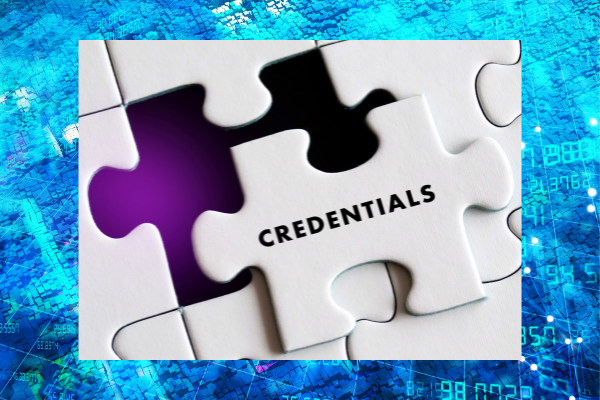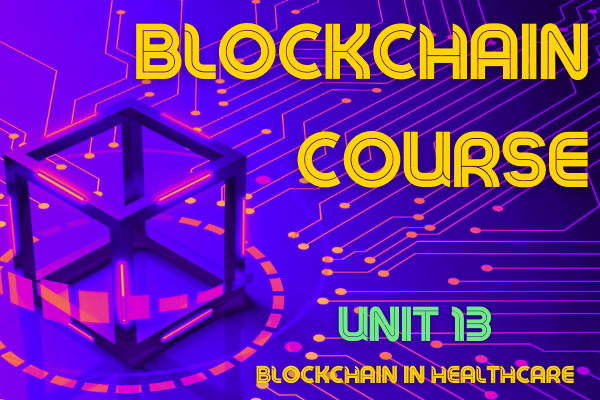Table of Contents
The relationship between Blockchain and the healthcare sector is a relationship that can and in many cases already does bring very positive things for the healthcare sector itself and, therefore, directly for people.
One of the first things in which the Blockchain can help the health sector is to solve the serious problem it suffers in the form of security breaches, where, on a daily basis, suffer continuous theft of private patient information, which in itself is serious, but to which must be added the sensitivity of the stolen data.
The importance of blockchain in this sector is such that 40 percent of senior executives working in the healthcare sector see blockchain as one of the top five priorities. Proof of this is that according to a report by BIS Research, it is estimated that by 2025 the value of investment made in Blockchain technology in this sector will exceed five billion dollars.
This huge investment may seem like a lot, however, if we take into account that the savings that the use of Blockchain can bring to this industry can be between 100 and 150 billion for that same year, the perspective changes. The savings come from the drastic decrease in costs related to operations, breach of private data, personnel and support functions, as well as a radical reduction in fraud and counterfeit products.

Pharmaceuticals and drugs
The pharmaceutical sector is another one that Blockchain technology can revolutionize as a whole, as well as the process of drug discovery, development and distribution. Previously, it is estimated that 9 out of 10 new drugs do not make it to a clinical trial, moreover, they do not even reach the approval stage by regulatory agencies. The big problem for pharmaceutical companies is obtaining crucial patient data at a time when people are increasingly aware of the importance of their personal data.
Big Pharma, or also called “Big Pharma,” faces many data-related problems. These include:
1 Pharmaceutical data disparity
Perhaps the most troubling data problem facing pharmaceutical companies, especially when it comes to drug development, is a serious data disparity. Keep in mind that pharmaceutical data is often recorded and hidden in silos, having access to it only through several different platforms.
Add to all this that each department often uses a separate data structure and model, so having access to all the crucial data by pharma companies for big data analysis becomes extremely complicated.
This is an area where artificial intelligence, big data analytics and blockchain can work together to deliver efficiency and accurate results for pharmaceutical companies. For this reason, around 61 percent of pharma companies are already adopting AI, with blockchain implementation in the pipeline.
2. The large consumption in time and resources required for data analytics.
Considering that pharma companies have to deal with so many data sources, they clearly have a problem when it comes to collecting data, managing it, and ultimately analyzing it.
The first problem they encounter is that, in the first phase of data collection, a lot of data that may prove to be crucial, does not end up being collected and therefore the final analyses not as effective as they could be.
As if that wasn’t bad enough, the whole process of harmonizing data from different sources can end up being quite slow. In addition, the lengthy analysis process may not uncover information that could be useful to the business.
That said, it is obvious that the entire data management process for pharmaceutical companies needs to change. After all, managing large data sets is already challenging for small and large pharmaceutical companies.
3. Data inaccuracies and ambiguity around relevance.
In the pharmaceutical space, there is always ambiguity around the accuracy of the available data. Is the data analytics report accurate and, if so, are the insights still relevant?
Since, as we mentioned earlier, pharma companies store data in silos that can be accessed through disparate channels, so it is often difficult for them to be sure if all available data is still valid and recent.
If implemented correctly, blockchain can help record, store and sort pharmaceutical data so that it always displays relevant and unambiguous information. In addition, any solution that can help pharmacists accurately manage data will be reflected in substantial financial savings, increase the bottom line and improve health outcomes for all.
Let’s look more specifically at how blockchain, along with other technologies such as AI (Artificial Intelligence) and Big Data, can transform the pharmaceutical industry.
– Improving the drug supply chain.
Managing a healthcare-related supply chain carries additional risk and complexity for large pharma, as a compromised supply chain can have serious ramifications, especially on health outcomes and patient safety.
In a report by BIR Research titled “Global Blockchain in Healthcare Market Analysis and Forecast, 2017-2025” they said the following:
“The most prominent beneficiaries of the technology will be pharmaceutical companies, which lose approximately $200 billion in counterfeit drugs each year. By enabling complete visibility and transparency across the entire drug supply chain, Blockchain will allow drugs to be traced back to their point of origin and therefore help eliminate counterfeit drugs, reducing lost revenue by up to $43 billion annually for pharmaceutical companies,” says BIR Research in its new market intelligence report titled “Global Blockchain in Healthcare Market- Analysis and Forecast, 2017-2025.”
Blockchain technology could be an excellent solution to improve data provenance, integrity, functionality and, of course, supply chain security for pharma.
In fact, there are already several Blockchain use cases for improving the healthcare supply chain, as well as optimizing the efficiency of the Internet of Healthcare Things (IoHT), securing internet-connected medical equipment, combating counterfeit drugs and much more.
One of the biggest challenges affecting the pharmaceutical supply chain is counterfeit medicines. These counterfeit drugs are the result of poor manufacturing practices and techniques, inefficient storage, drug theft and market penetration of low-quality or counterfeit products in so-called gray markets.
In fact, the WHO (World Health Organization) says this counterfeit drug market is worth about $75 billion, but the figure could be even higher in reality. This is especially true in countries like Bangladesh, where the vast majority of spending on medicine goes to import suppliers.
Of course, the pharmacy supply chain is susceptible to counterfeit drugs not only in low-income and developing countries, but also in more developed countries.
In this context, pharma companies may want to team up with mature Blockchain technology companies to design, implement and manage their drug supply chains.
The collaboration between global pharmaceutical giant GlaxoSmithKline and Blockchain company Viant is a great example. It’s a partnership that will help facilitate the adoption and use of Blockchain-powered tracking technology to secure the pharma supply chain.

– Managing drug testing data for research purposes.
Managing and accessing drug trial data is a recurring problem in the healthcare industry, and even more so for pharmaceutical companies.
Most pharmaceutical companies maintain their drug trial data in centralized databases that must meet a number of strict confidentiality and other ethical and regulatory requirements.
The problem is that these centralized databases make it difficult for researchers and drug trial leaders to share data with the right people. That’s where blockchain comes in. Blockchain in healthcare helps the pharmaceutical industry create distributed, unalterable and auditable databases to store and access drug trial data.
We can take the MIT Enigma system as an example. It is a full-fledged Blockchain initiative that uses two central cryptographic blocks that work in tandem over a peer-to-peer network of nodes. In simple terms, this system is a secret-sharing platform that allows researchers to maintain a high level of privacy and security when dealing with clinical trial data.
– Improve clinical trial accounting
Keeping up with accounting and costs during clinical studies and/or trials, especially those lasting long periods, is a well-known challenge for pharmaceutical companies.
Currently available accounting tools are too complicated and do not show the real complexity behind clinical trial costs. To make matters worse, estimated financial accruals from clinical trials can become an almost impossible mission when it comes to harmonizing accounting ledgers.
The good news is that Blockchain technology can be implemented to track clinical trial finances, as well as make accounting efficient, accurate and easy.
Because of the inherent complexity of clinical trial finances, companies like Boehringer Ingelheim have announced that they will work with Blockchain firms to streamline their accounting and financial reporting activities. The same company announced in 2019 a partnership with IBM to use Blockchain for clinical trials.
This collaboration, which is the first of its kind in the pharmaceutical industry, will produce a new blockchain solution to improve the quality of clinical trial processes and record keeping.
“The clinical trial ecosystem is very complex, involving different stakeholders, resulting in limited trust, transparency and process inefficiencies without true patient empowerment,” said Uli Broedl, Boehringer’s now head of global clinical operations, explaining the need for the blockchain-powered solution.
– Finding the right people for a medical trial faster
Pharmaceutical and healthcare facilities spend a great deal of money and a lot of time finding, qualifying and onboarding the right candidates for their clinical trials. And since only 10% of new drugs reach the market, it is critical to identify and recruit the best possible candidates. Currently, there are several different software and technologies used by pharmaceutical companies to perform this process.
Unfortunately, these types of tools do not always identify the right patients, hence the need for Blockchain technology.
While Blockchain technology itself might not do much to correct patient identification, it can help bring some of the data integrity, accessibility, security, privacy and interoperability that pharma needs. Regarding the latter, from a consumer and pharma point of view, several Blockchain-based marketplaces have already been launched.
In the case of 4Medica, Blockchain technology is used to make patient-clinical matching more efficient, more cost-effective and faster. Technically, Blockchain itself is used to track each patient’s unique identifier. It’s a central place to keep track of all these identifiers make it easy for pharma professionals to match patients to their clinical trials.
But there is a second use case. Today, researchers try to find the right candidates for drug trials through patient IDs mapped to EHR (electronic health record) data. This process is done almost manually so it can be susceptible to losing potential candidates during the process. The use of the Blockchain would bring the potential loss of potential candidates down to zero because all of their information would be recorded and accessible to researchers.
Healthcare institutions and providers
Managing patient data, complying with regulations from regulatory bodies and keeping up with new directives as they emerge is not an easy job for any healthcare-related organization.
The whole process can be tough, tedious and inefficient, not to mention the considerable costs associated with it. In fact, according to a survey conducted by KPMG, 38% of major healthcare facilities say that improving electronic health record (EHR) management is one of the things with the highest priority and where the largest budget is going to be invested.
That said, blockchain can help improve interoperability, security, accessibility, compliance, management and sharing of patient data in many ways, including:
1. consent management
Forward-thinking healthcare facilities, practices and providers can pave the way for consent management by leveraging blockchain features.
Currently, the entire process of acquiring and managing consents from patients is a very laborious task where it gets lost and very inefficient in any terms. In addition, it has to comply with a very strict set of rules on data protection and patient privacy.
This is where HealthVerity is transforming the way modern healthcare institutions make critical and defining decisions, especially when it comes to handling patient data.
HealthVerity has developed a Blockchain-based platform that serves as a stage for rapid generation, exchange and management of patient and healthcare data.
More importantly, the technology platform ensures compliance with the regulatory framework by establishing a shared, unalterable record of all patient consent transactions that occur within a healthcare facility. In this way, only parties with express permission can access patient data on the fly without compromising their security and consumer privacy.
It is also worth noting that the HealthVerity platform eliminates other challenges such as data inconsistency, ambiguities and fragmentation.
The result is a robust consent management system that facilitates the collection of relevant patient data while complying with all patient data protection and privacy regulations.
2. Filling out forms for hospital admission
In countries like the U.S., the hospital admission process is another aspect that needs a lot of improvement due to the way it is managed, where patients often waste time waiting in lines and filling out the necessary forms.
That’s why Blockchain companies like Kalibrate Blockchain are looking for ways to change things for the better. The firm has developed a Blockchain engine called Universal Patient Index for its FormDrop mobile app.
What this mobile app does is allow hospitals to use a Blockchain solution that allows new patients to fill out forms before going to the hospital to avoid queues and wasted time. It is really a significant breakthrough for healthcare institutions in countries that require these types of procedures and are looking to improve workflow and facility efficiency.
3. Smart contracts
There is a plethora of contracts in the healthcare sector, between patients and hospitals, between various healthcare providers, between healthcare organizations and providers, and so on. All of them could also undergo a revolution with something we have seen before, smart contracts.
We can put 2 use cases of smart contracts in the healthcare sector:
– B2B (business-to-business) smart contracts:
Smart contracts can help process, receive claims and send payments.
That’s where smart Blockchain companies come into play, helping to design smart contracts between healthcare organizations and insurance providers.
The Blockchain-based smart contract system created by TIBCO Software in collaboration with Change Healthcare is a good example. This system enables healthcare payers to automate processes across the claims and transactional lifecycle.
Called Aptly Project Dovetail, the smart contract platform uses Intelligent Healthcare Network’s Blockchain technology and TIBCO’s smart contract project to deliver seamless, secure and verifiable healthcare transactions
Another great example of B2B Smart contracts in healthcare is the collaboration of Minute Clinic, PBM and Caremark. The CVS Minute Clinics CVS smart contract system was designed to make medication dispensing, clearing and payment processing a breeze.
– Patient-Hospital Contracts:
Currently, some hospitals must use a number of complex systems to automate various aspects of healthcare transaction processing.
Some of these systems are currently riddled with loopholes and sometimes require human intervention. This not only wastes time, but can also be costly.
Smart patient-hospital contracts, on the other hand, present a more efficient, cost-effective and simpler solution in which self-executing contract rules can simplify the recording and monitoring of something as simple as a patient’s visits to his or her physician.

4. Physician Credentialing Verifications
Hashed Health is a company that uses Blockchain to ensure that only doctors with official qualifications are part of the healthcare ecosystem. They built a credential verification system for doctors to prove they are licensed to operate.
Hashed Health partnered with Accenture, WellCare, Spectrum Health, National Government Services, Hardenbergh Group and HealthLink Dimensions to create a Blockchain-based credentialing system.
The solution is actually an exchange platform that provides hospitals and other healthcare institutions with access to verified credentialing information, as well as a means for them to provide verified information that can be shared with all other healthcare organizations.
Participating healthcare organizations can define particular rules, data and validation checks for credentialing any type of employee, from nurses to physicians and other specialists.
Ultimately, the Blockchain-based platform helps physicians and healthcare organizations alike save time and comply with different regulations.
5. Securely secure and transfer data
Today, there are thousands of smart devices that collect a wealth of vital user information.
Devices such as Omron HeartGuide or Apple Watch collect a variety of crucial data, from sleep patterns and blood pressure to physical activity, heart rate and much more.
This is an enormous amount of sensitive data that can be harmful if it falls into the wrong hands. For example, in countries without public healthcare, a device showing that the owner of the device is not exercising and taking readings that could be interpreted as heart malfunction could end up leading to health insurance for that person increasing exponentially if that information were to fall into the hands of insurers.
As such, the security, transmission and privacy of this crucial information must be protected at all costs.
One of the effective ways to do this is to use a blockchain approach that allows for the secure recording, transmission and exchange of this information between devices and healthcare providers.
6. Incentives for better health.
The Cigna Healthy Rewards program is a program that helps network members get discounts when they sign up for weight management and nutrition programs, gyms and fitness clubs, as well as get vision and hearing screenings, seek alternative medicine such as acupuncture, sign up for mental and body wellness programs, or purchase vitamins, health and wellness products.
Blue Cross Blue Shield announced that it will offer deep discounts for Fitbit products to its 60 million members. The partnership with Fitbit is intended to “help consumers create and maintain healthy habits,” according to HealthcareWeeky.
7. Improve medication adherence
Adherence, in medicine, is the patient’s adherence to the treatment prescribed to him or her. Not only is medication adherence crucial for patient safety, opioid overdose prevention and overall wellness, but it can also present enormous cost-saving potential for healthcare institutions and providers.
In fact, improving medication adherence can lead to cost savings of more than $290 billion in the United States and €800 million in the United Kingdom, according to studies by the New England Healthcare Institute and the University of London School of Pharmacy, respectively.
There are already Blockchain firms such as Guardtime that is using this technology to ensure medication adherence.
Guardtime, the UK-based healthcare technology firm, along with industry collaborators Healthcare Gateway and Access Medical, has launched MyPCR, the world’s first Blockchain-powered personal care record (PCR) platform.
The MyPCR platform not only automates medical adherence verification, but also ensures the integrity and provenance of patient data, as well as efficient management of GDPR patient data rights (consent). It is currently available to over 30 million NHS patients in the UK.
Consumers and Providers
So far, we’ve talked about blockchain only in the context of what this revolutionary technology can do in the B2B healthcare context. However, there are also huge opportunities for blockchain to completely redefine the relationship between consumers and healthcare providers in the marketplace. Let’s take a look at how consumers are benefiting from blockchain adoption in the healthcare sector.
Medical record management and sharing.
Access to complete and accurate medical records across healthcare organizations ensures effective disease diagnosis and more efficient patient care.
Since medical records currently reside in centralized databases, blockchain can help ensure that patient data can be transferred from one healthcare institution to another efficiently, securely, accurately and reliably.
This comes in the form of the decentralized medication management system (DMMS for short), a comprehensive platform that leverages blockchain technology to manage the access and exchange of patient records.
According to Blockchain Healthcare Today, “DMMS is realized as a decentralized network under the Hyperledger framework. Based on the network, we designed an architecture within which each prescriber can create prescriptions for each patient and perform queries on historical prescriptions accordingly.”
A classic example of a DMMS platform is Medicalchain, based on the hyperledger blockchain that allows patients to give access to their medical records to specific healthcare providers, for later, the registered healthcare professional interacts with the patient’s data in an immutable, secure and transparent manner.
In practice, Medicalchain shares electronic medical records, as well as allowing users to sell their data to researchers.
This medium would also be a breakthrough when it comes to treating people in other countries. If necessary, any health professional who needed it could access the patient’s entire medical history from any country, shortening the time required for clinical analyses that can be critical in certain circumstances.
Selling medical data
Researchers are always looking for the right medical data to support their findings or inform their research activities.
To gain access to the right patients, research companies often go through intermediaries, typically healthcare marketing firms that find the right patients with the right health problems. That’s where blockchain companies like Embleema can come in handy.
What Embleema is doing is getting rid of the middlemen, but also allowing patients to own their data and find someone who wants to buy it. This helps both pharmaceutical users and end users who can now monetize their data and not have it acquired in questionable ways and methods by many corporations without patients being aware of it.
In the UK, for example, only a third of patients know how National Health Services (NHS) uses their data, and only 16 percent and 18 percent of them know how their medical data is used by commercial organizations and academic researchers respectively. This is something Embleema seeks to rectify.
But Embleema is not the only blockchain initiative aimed at decentralizing and selling patient data.
Hu-manity.co is another blockchain-based application that allows users to sell their medical data to researchers and large pharma directly by eliminating the middleman. And this is not exactly a market that is in decline. The patient data market is estimated to be worth between $150 billion and $200 billion. PatientSphere, meanwhile, uses a mix of AI and blockchain to consolidate and help users derive revenue from their patient data.
In September 2018, HU-manity.co also announced the adoption of IBM’s blockchain platform for its global consent ledger to manage personal data ownership rights.
Blockchian technology applied almost any branch of the healthcare industry promises to be the expected solution to help solve some of the most pressing problems that all healthcare and pharmaceutical industries face on a daily basis.
It is also true that not everything is perfect and that it may present some problems, however, the list of benefits is so devastating that it dwarfs any doubts that may arise about its application.




